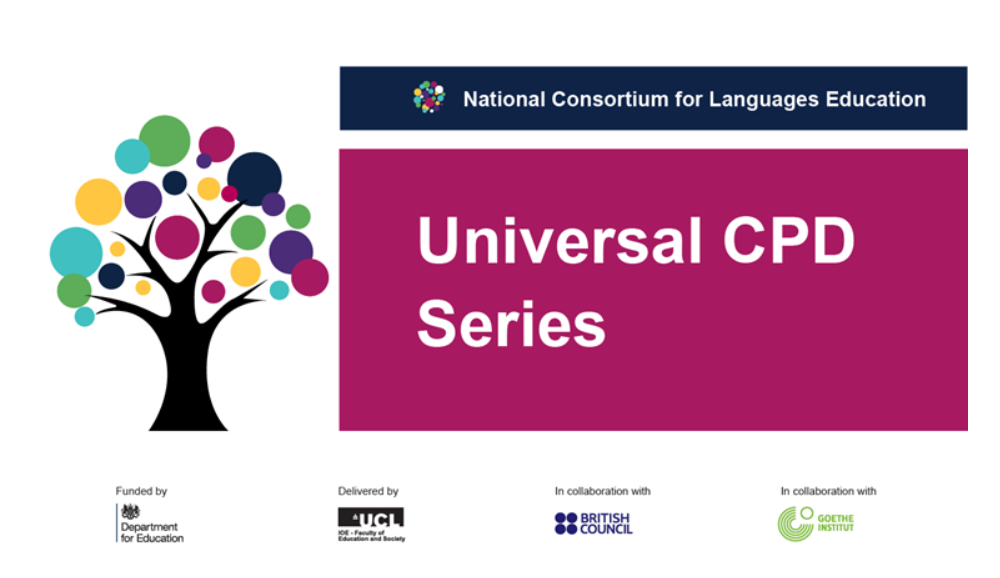At the time of the Department for Education’s GCSE subject consultation (Summer 2021) NALA sought members’ views about the proposed reforms. Webinars about the consultation were open to all members, and those who attended participated in lively debate. The NALA Executive Committee then sent the DfE a detailed response which set out a collective view based on what members told us. A period of ‘radio silence’ from the DfE followed until NALA was invited by the Department to attend an informal meeting about the proposed changes in mid-October of this year.
The Exec felt that this was an important time to work closely with other languages subject associations (ALL and ISMLA) to give the most powerful voice possible to language teachers. The three associations identified a great deal of common ground and met with the DfE on three occasions to discuss collective points of agreement and give detailed explanations about our areas of concern. The three subject associations also collaborated to hold meetings with the awarding bodies who, we discovered, shared our concerns about the DfE’s proposals.
Ultimately, the outcome of our concerted efforts to engage with the DfE has resulted in the following joint statement on behalf of MFL subject associations, awarding bodies and head teacher associations. A full list of signatories is available at the bottom of the statement, or by downloading the statement here.
Background
We share the Department for Education’s ambitions to increase participation in language learning at KS4 and beyond. We welcome research-informed initiatives to achieve this, as well as the intention to make expectations for learners as transparent as it is wise to do so in the context of Modern Languages.
We recognise the GCSE as the pivotal moment within the languages system, around which other key phases and stages revolve. We recognise, too, the critical importance of ensuring that the languages curriculum is viable and enjoyable for students right across the UK’s communities, and we are concerned by current patterns of unequal uptake.
Proposed changes to GCSE MFL Subject Content
The publication of new draft subject content for GCSE MFL in March 2021 by the Department for Education included some uncontroversial and positive developments.
However, significant concerns were voiced by school leaders, subject associations, academic researchers, awarding organisations, practitioners, teacher educators and parliamentarians relating to certain key aspects of the proposals. These concerns related to issues such as:
- Whether students will have sufficient vocabulary to communicate in real life situations
- The divergence between GCSE and A-level and the likely adverse impact on take-up of languages
- The adverse impact of reform so soon into the lifecycle of the current specifications, such as the effect on workload for teachers and schools, as well as the costs relating to resources and training
Specifically, it was identified that further consideration was required on three matters:
- Vocabulary size and standards of attainment
- Vocabulary selection and cultural content (where a proposed reworking of the draft subject content has widespread stakeholder consensus)
- Assessment parameters.
While the proposals were based on a segment of relevant published research, we note there is a considerable body of research which validates our concerns. We also note that the proposed model of learning and assessment is a risky one, given the lack of international precedent and absence of independent evaluation.
There is widespread stakeholder consensus regarding the necessary direction of travel for these proposals, particularly in terms of vocabulary and thematic, cultural content. We are reassured that the Department for Education appears to be taking the time necessary to closely consider these and other issues raised in the consultation before publishing its formal response.
Next steps
We now propose a new, second phase of design and development be undertaken by the Department for Education, collaboratively with a full range of subject stakeholders, including awarding organisations, to be completed before Easter 2022.
We propose that this second phase of design work focus on:
- Short-term improvements that can be made to existing qualifications within the existing content criteria
- The nature and extent of vocabulary specification in the future GCSE
- The coherence of the defined content with its learning outcomes.
It remains our collective goal to increase uptake in Modern Language learning, while continuing to raise standards through a knowledge-led model, and help ensure that learners experience a carefully planned, manageable curriculum which delivers genuine, real-life linguistic proficiency and the wider benefits that language-learning provides.
The Department for Education’s GCSE Modern Foreign Language (MFL) subject content review public consultation document can be found here. The draft subject content consulted on by the Department can be found here.
Notes
List of organisations and their websites:





